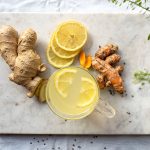Tips to Avoid Harmful Seed Oils: Swap This for That and Protect Your Health

If you’ve ever taken a moment to scan the ingredients list on your favorite packaged foods, you’ve probably come across a common offender: seed oils. These oils, often disguised under names like sunflower oil, canola oil, soybean oil, or palm oil, are in nearly everything—from peanut butter to mayonnaise to salad dressings. But while these harmful seed oils may be cheap and convenient for manufacturers, they come with serious health concerns that should not be overlooked. In fact, they may be doing more harm than good when consumed regularly.
But don’t worry, there’s good news! With a few simple swaps, you can avoid these harmful oils and make healthier choices for you and your family. Let’s dive into why you should steer clear of seed oils, what exactly makes them harmful, and most importantly—how to swap them for healthier alternatives.
Why You Should Avoid Harmful Seed Oils
Seed oils—such as sunflower, soybean, canola, corn, and sesame oils—are highly refined oils that are extracted through processes involving heat, chemicals, and industrial solvents. These oils are often marketed as healthy or “heart-healthy” because they are high in polyunsaturated fats, which are essential fatty acids. However, the way these oils are processed actually makes them harmful to the body in the long run.
- High in Omega-6 Fatty Acids: Seed oils are loaded with omega-6 fatty acids, which, in excess, can cause inflammation and promote various chronic diseases like heart disease, diabetes, and obesity. While omega-6s are essential in moderation, the typical modern diet is already overloaded with these fats, tipping the balance in favor of inflammation.
- Oxidation and Free Radicals: The high heat and chemical processes used to extract seed oils make them prone to oxidation. When consumed, oxidized oils can cause damage to cells and tissues, promoting the development of chronic illnesses and accelerating the aging process. These oils also increase the production of free radicals, which can lead to cellular damage over time.
- Unstable for Cooking: Seed oils have a low smoke point, meaning they break down at lower temperatures and release harmful compounds when heated. This is especially concerning if you’re using them for frying or high-heat cooking. The last thing you want is to be introducing toxins into your body while cooking your food.
So, if seed oils are so bad, why are they everywhere? The answer lies in cost and convenience. These oils are inexpensive to produce, have a long shelf life, and are versatile in cooking. Unfortunately, this convenience has come at the expense of our health.
How to Avoid Harmful Seed Oils: Simple Swaps You Can Make
The good news is that making small changes to your grocery list can lead to significant improvements in your diet. Here are some practical swaps to help you avoid seed oils and replace them with healthier, more nourishing alternatives.
1. Swap Store-Bought Peanut Butter for Natural Peanut Butter
You might be surprised to find that many peanut butters on the market contain seed oils like canola or soybean oil. These oils are added to create a smoother texture and to extend shelf life. But they come at the expense of your health.
Swap for: Look for all-natural peanut butter that contains only peanuts (and perhaps a pinch of salt). Natural peanut butter has a thicker, less processed texture but is far more nutritious. You can even make your own peanut butter at home using a food processor—no seed oils required.
2. Swap Commercial Salad Dressings for Olive Oil or Avocado Oil-Based Dressings
Most store-bought salad dressings contain soybean or canola oil as the primary ingredient. These oils are processed and refined, adding little nutritional value to your meal and introducing unnecessary inflammation-promoting fats.
Swap for: Make your own salad dressing using extra virgin olive oil, avocado oil, or coconut oil. These oils are rich in monounsaturated fats (olive oil) and healthy medium-chain triglycerides (MCTs) (coconut oil), which are far better for your body. A simple dressing of olive oil, balsamic vinegar, Dijon mustard, garlic, and a pinch of salt is not only delicious but also nourishing.
3. Swap Margarine for Grass-Fed Butter or Ghee
Margarine is one of the most common sources of trans fats, and it’s often made with seed oils like soybean or sunflower oil. These fats are toxic to the body, increase inflammation, and contribute to heart disease.
Swap for: Use grass-fed butter or ghee (clarified butter) instead. Both are rich in healthy fats and contain beneficial nutrients like butyrate, which is important for gut health. Grass-fed butter has a much better omega-3 to omega-6 ratio, making it a heart-healthy alternative.
4. Swap Store-Bought Mayonnaise for Avocado Oil Mayo
Most commercial mayonnaise is made with highly refined oils like soybean or canola oil. While it may be tasty, it’s not doing your health any favors.
Swap for: Avocado oil mayo. This mayo is made with heart-healthy avocado oil and is free from harmful seed oils. It’s creamy, flavorful, and perfect for sandwiches, dips, or even as a base for homemade sauces.
5. Swap Cooking Oils for Coconut Oil, Olive Oil, or Butter
When cooking at home, it’s easy to rely on vegetable oils for their versatility. But with the potential health risks involved, it’s time to make better choices.
Swap for:
- Coconut oil is an excellent option for frying and sautéing, especially if you’re looking for a high-heat stable fat.
- Olive oil is perfect for low- to medium-heat cooking, roasting, and as a dressing.
- Butter or ghee works wonderfully for baking and medium-high heat cooking.
These alternatives are not only safer but also more nutrient-dense and flavorful than seed oils.
6. Swap Processed Snacks for Whole Foods
Many processed snacks, including chips, crackers, and baked goods, contain seed oils as a cheap filler. These snacks are also typically packed with added sugars, refined carbs, and artificial additives that can contribute to poor health over time.
Swap for: Opt for whole food snacks like raw nuts, fresh fruit, homemade veggie chips (baked in olive oil), or rice cakes with nut butter. These snacks are naturally rich in nutrients and free from harmful seed oils. Bonus recipe to reverse health effects is our lemon, ginger and turmeric shots.
What to Buy: A List of Healthier Alternatives
Here’s a quick reference list of healthier alternatives you can stock up on to avoid seed oils:
- Peanut Butter: Choose all-natural or make your own at home.
- Salad Dressings: Look for olive oil or avocado oil-based dressings, or make your own.
- Margarine: Swap for grass-fed butter or ghee.
- Cooking Oils: Stock up on olive oil, avocado oil, coconut oil, and butter.
- Mayonnaise: Choose avocado oil mayo or make your own with olive oil.
- Snacks: Choose whole, unprocessed foods, like raw nuts, seeds, and fresh fruits.
Conclusion: Take Control of Your Health, One Swap at a Time
Avoiding harmful seed oils may seem like a small change, but it’s one that can make a significant impact on your long-term health. By replacing processed oils with natural, nutrient-dense fats like olive oil, avocado oil, and coconut oil, you’re nourishing your body and reducing your risk of inflammation and chronic disease.
Start making these swaps today—your body will thank you for it. And remember, the path to better health is all about consistency, one mindful choice at a time. So, step into a healthier lifestyle and say goodbye to seed oils for good. You’ve got this!











Jay
January 3, 2025Any butter is better than margarine -not only grass fed!